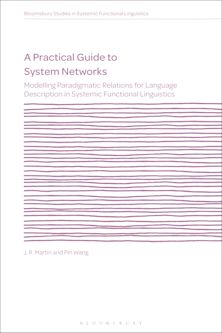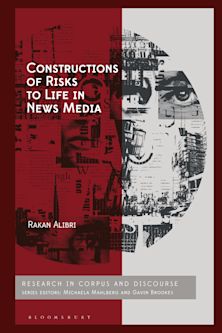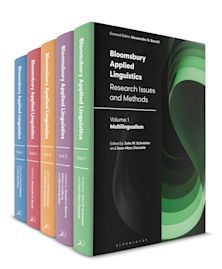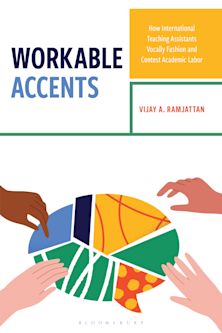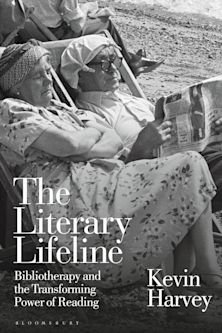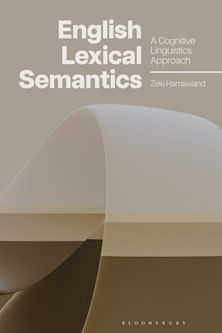Ecolinguistics, Social Justice and Sustainability
Voices from the Global South
Mohamed Mliless (Anthology Editor) , Mohammed Larouz (Anthology Editor) , David Stringer (Anthology Editor) , Diego Luis Forte (Anthology Editor) , George M. Jacobs (Anthology Editor) , Meng Huat Chau (Anthology Editor)
- Open Access
Ecolinguistics, Social Justice and Sustainability
Voices from the Global South
Mohamed Mliless (Anthology Editor) , Mohammed Larouz (Anthology Editor) , David Stringer (Anthology Editor) , Diego Luis Forte (Anthology Editor) , George M. Jacobs (Anthology Editor) , Meng Huat Chau (Anthology Editor)
- Open Access
This product is usually dispatched within 10-14 days
- Delivery and returns info
-
Free UK delivery on orders £30 or over
Description
Decentring the growing field of ecolinguistics from its historically Western orientation, this open access book offers a comprehensive exploration of the intricate relationship between language and the environment in the Global South.
It brings forward new perspectives and voices to broaden our understanding of the role of language in addressing ecological challenges.
Through a series of thought-provoking chapters, the book navigates through various dimensions of ecolinguistics, shedding light on critical issues and innovative approaches across diverse contexts. Case studies include the representation of ecotourism in Morocco, the implementation of ecological ideology in Oman, colonial legacies in Argentina's food production discourse, ecological identity in Kenya, the role of civets in Indonesian coffee production and life stories about Senegalese ecologies.
Through a blend of theoretical insights and practical applications, the book advocates for a holistic understanding of ecolinguistics that transcends geographical boundaries and cultural nuances.
The ebook editions of this book are available open access under a CC BY-NC-ND 4.0 licence on bloomsburycollections.com. Open access was funded by the Bloomsbury Open Collections Library Collective.
Table of Contents
List of Tables
List of Contributors
Foreword, Hildo Honório do Couto
Acknowledgements
List of Abbreviations
Introduction, Mohamed Mliless (Independent Researcher, Morocco)
1. Advances, Challenges and Opportunities for Ecolinguistics in Latin America, Mariana Roccia (University of Gloucestershire, UK)
2. Investigating the Discrepancies between Environmental Education and Students' Environmental Practices: A Mixed-Method Approach, Hassane Razkane (Chouaib Doukkali University El Jadida, Morocco), El Ayachi El Baghdady (Chouaib Doukkali University El Jadida, Morocco), Adil Youssef Sayeh (Chouaib Doukkali University El Jadida, Morocco) and Mohamed Yeou (Chouaib Doukkali University El Jadida, Morocco)
3. Implementing the Ecological Ideology through the Integration of Ecolinguistic Materials into the EFL Context at Higher Education in Oman, Iman Jabbar Abbas (University of Technology and Applied Sciences, Sultanate of Oman) and Ouarda Khouni
4. Children's Books for Enjoyment, Language Learning, and the Sustainable Development Goals, Chenghao Zhu (Universiti Malaya, Malaysia), Meng Huat Chau (Zhejiang International Studies University, China), Hisham M. El-Tahawy (Arab Open University, Bahrain), Jasper Roe (James Cook University, Singapore) and George M. Jacobs (James Cook University, Singapore)
5. Integrating Ecolinguistic Perspective of Outstanding Universal Values of Subak in English Learning: A Mental Model Analysis, Agung Sri Jayantini (Universitas Mahasaraswati Denpasar, Indonesia), Sang Putu kaler Surata (Universitas Mahasaraswati Denpasar, Indonesia) and Ronald Umbas (Institute of Social and Political Science Wira Bhakti)
6. Representation of Ecotourism in Morocco: An Ecolinguistic and Visual Analysis of YouTube Videos, Mohamed Mliless (Independent researcher, Morocco), Mohammed Larouz and Mohamed Louza (Cadi Ayyad University, Morocco)
7. Colonial Thought, Eco-Industrialism and Speciesism in the Discourse of Argentina's Food Production Control Agency, Diego L. Forte (National Library of Argentina, Argentina)
8. Ecological Identity in Kenya via Lexicogrammar of Swahili Exploring Ecological Identity in Kenya, Peter Githinji (Kenyatta University, Kenya) and Philip W. Rudd (Pittsburg State University, USA)
9. A Biographical Approach to Decolonial Ecolinguistics Learning from Life Stories on the Margins about Senegalese Ecologies, Mouhamed Abdallah Ly (University of Dakar, Senegal) and Monika Christine Rohmer (University of Bayreuth, Germany)
10. An Ecolinguistic Analysis of the Role of Civets in Indonesian “Civet Coffee”, Ingrid Gavilán Tatin (Universitas Negeri Yogyakarta, Indonesia), George M. Jacobs (James Cook University, Singapore), Meng Huat Chau (Zhejiang International Studies University, China), Chenghao Zhu (Universiti Malaya, Malaysia) and Aditya Alam Soeta Bangsa (Universitas Negeri Yogyakarta, Indonesia)
Conclusion, Mohamed Mliless (Independent Researcher, Morocco)
Index
Product details

| Published | 30 Oct 2025 |
|---|---|
| Format | Hardback |
| Edition | 1st |
| Extent | 256 |
| ISBN | 9781350523807 |
| Imprint | Bloomsbury Academic |
| Illustrations | 20 bw illus |
| Dimensions | 234 x 156 mm |
| Series | Bloomsbury Advances in Ecolinguistics |
| Publisher | Bloomsbury Publishing |
Reviews

OPEN ACCESS
Bloomsbury Open Access
Read and download this book free of charge from Bloomsbury Collections.















